About the Editors
Editors-in-Chief
 Catarina Frazão Santos, MD, PhD
Catarina Frazão Santos, MD, PhD
Researcher, Department of Animal Biology
Marine and Environmental Sciences Centre (MARE), Faculdade de Ciências, Universidade de Lisboa
Cascais, Portugal
Dr. Catarina Frazão Santos is a researcher and lecturer on marine planning at the Department of Animal Biology, University of Lisbon. She is also a member of MARE — Marine and Environmental Sciences Center / ARNET — Aquatic Research Network (ARNET), University of Lisbon, and a research associate at the NOVA School of Business and Economics. With a background in marine biology and environmental management, her research focuses on the multiple dimensions of ocean sustainability, particularly the development of sustainable, adaptive and equitable marine spatial planning initiatives under global change.
 Rashid Sumaila, PhD
Rashid Sumaila, PhD
The University of British Columbia
Vancouver, BC, Canada
Dr. Rashid Sumaila is a University Killam Professor at the Institute for the Oceans and Fisheries, and the School of Public Policy and Global Affairs, University of British Columbia. His research focuses on bioeconomics, marine ecosystem valuation and the analysis of global issues such as fisheries subsidies, marine protected areas, illegal fishing, climate change, marine plastic pollution, and oil spills. Simply put, the whole world is Sumaila’s work place as he has experience working in 6 continents. Dr. Sumaila received his Ph.D. (Economics) from the University of Bergen, Norway and his B.Sc. (Quantity Surveying) from the Ahmadu Bello University, Nigeria. Sumaila has won several awards including the 2021 SSHRC Impact Award in the Partnership Category; the 2017 Volvo Environment Prize and is a Fellow of Royal Society of Canada.
Managing Editor
 Jialiang Cai, PhD
Jialiang Cai, PhD
Jialiang received a B.Sc. in Ecology from East China Normal University (China) and a M.Sc. in Environmental Sciences from Peking University (China). He earned his Ph.D. in Hydrogeology from Freie Universität Berlin (Germany). Jialiang continued to work first as a Postdoctoral Researcher and later as a PI (Visiting Research Fellow) for 7 years at Aalto University (Finland). His research focused on understanding the exposure and resilience of society to nature resources risk as well as the synergies and tradeoffs between economic competitiveness, social welfare, and environmental sustainability for accessing transformative pathways towards achieving the 2030 Agenda in a warmer world. Prior to joining the npj series in May 2023, Jialiang served as a Senior Editorial Development Specialist at earth science, astronomy and space sciences, physics, and chemistry journals at Frontiers. He is based in the Shanghai office.
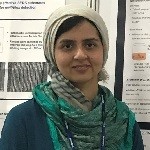 Basma Qazi-Chaudhry, PhD
Basma Qazi-Chaudhry, PhD
Basma joined the npjs in August 2021 after completion of her PhD at King’s College London. Her doctoral research was at the interface of chemistry, physics and bio imaging developing nanoparticle probes as biological imaging contrast agents for vibrational micro-spectroscopy. Prior to that, she received her master’s degree in micro and nanotechnologies for integrated systems and her bachelor’s in Electrical and Electronics Engineering from EPFL, Switzerland. Basma is based in the London office and is currently on parental leave.
Associate Editors
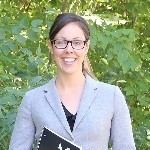 Jessica L Blythe, PhD
Jessica L Blythe, PhD
Environmental Sustainability Research Centre
Brock University
St. Catharines, ON, Canada
Dr. Blythe is an environmental social scientist. Her research explores how communities experience environmental change, and what explains their differential capacities to respond. She is particularly interested in building the resilience of local communities to climate change, securing sustainable small-scale fisheries, and equitable collaborative forms of marine resource governance.
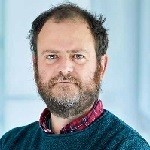 Ibon Galparsoro, PhD
Ibon Galparsoro, PhD
AZTI
Pasaia, Spain
Dr. Galparsoro is a marine ecologist concerned with the need for sustainable management of the oceans and committed to solving the environmental issues affecting society today and in the future. His current research interests are focused on the assessment of the ecological risks produced by human activities on marine ecosystems, and their consideration when developing models and tools to inform management and spatial planning decisions, including the conservation and declaration of protected areas.
 Stephanie Green, PhD
Stephanie Green, PhD
Associate Professor, Department of Biological Sciences
University of Alberta
Edmonton, AB, Canada
I study the causes and consequences of biodiversity change in ocean ecosystems, with the goal of developing science-based tools to inform conservation and restoration decision-making under global change. I relish the opportunity to span scientific spaces: developing projects that bridge concepts and scales of investigation, and fostering relationships between people as they work to affect change. As a result, my interests are broad, ranging from simulation models of predator-prey interactions and food webs to coupled social-ecological modeling examining behaviour change. The common theme across my work is advancing ecological theory in service of society.
 Priscila Lopes, PhD
Priscila Lopes, PhD
Associate Professor, Department of Ecology
Federal University of Rio Grande do Norte
Natal, RN, Brazil
Priscila's research is interdisciplinary, mixing ecology methods with social sciences and economics. Her work focuses on the understanding of the dynamics of small-scale-scale fisheries, fishers’ behaviour and strategies and reasons driving socioecological resilience and compliance. One of Priscila’s main interest is to unlock the potential for Local Ecological Knowledge to be a source of reliable quantitative scientific information that can contribute to conservation.
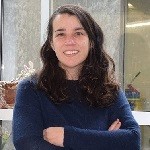 Elena Ojea, PhD
Elena Ojea, PhD
Senior Researcher
Centro de Investigación Mariña, Universidade de Vigo, Future Oceans Lab
Vigo, Spain
Elena Ojea is a researcher at the Future Oceans Lab in the University of Vigo (Spain). Her background combines environmental and social sciences to address the challenges of marine and coastal social-ecological systems. She is a lead author for the IPCC 6th Assessment Report Oceans Chapter and contributes to global ocean sustainability policy initiatives such as the HLP for a Sustainable Ocean Economy or the IHH-FAO project.
 Sebastian Villasante, PhD
Sebastian Villasante, PhD
Professor and Researcher, Department of Applied Economics
University of Santiago de Compostela
Santiago de Compostela, Spain
Dr. Sebastian Villasante is a Professor of Economics, Distinguished Researcher and Director of the EqualSea Lab at University of Santiago de Compostela (Spain), funded by the European Research Council Consolidator Grant, and a Karl-Göran Mäler scholar at The Beijer Institute of Ecological Economics. He is an international leader in developing methods to understand pathways for transformative changes of global fisheries and seafood systems. Dr. Villasante is also actively involved in international and regional initiatives that bridge science and policy, providing advice to governments, the fisheries sector and ONGs. He is currently a Coordinating Lead Author of the IPBES Transformative Changes Global Assessment, Co-Chair of the PECS Program on Ocean Equity for Sustainable Futures, and co-author of the Global Tipping Points Report 2023.
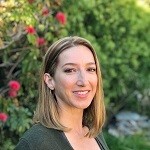 Lisa Wedding, PhD
Lisa Wedding, PhD
Associate Professor, School of Geography and the Environment
University of Oxford
Oxford, United Kingdom
Dr Lisa Wedding is an Associate Professor in the School of Geography and the Environment at the University of Oxford. Dr Wedding's research focuses on understanding the social-ecological causes and consequences of spatial patterns and ecological processes in the marine environment. Increasingly, her research is positioned at the interface between science and policy and she often work with a highly interdisciplinary team of lawyers, social scientists, and practitioners where she links place-based scientific research findings to inform ocean governance. Dr Wedding is the PI of the Oxford Seascape Ecology Lab where she works and foster an inclusive lab group that can bring diverse perspectives needed to creatively address complex marine environmental problems and illuminate science-based solutions. At the Oxford Seascape Ecology Lab, she leads research centered around three main thematic areas including 1) seascape ecology and conservation; 2) cultural seascapes and ecosystem services and; 3) linking geospatial data science to ocean governance solutions.
Editorial Board Members
Tundi Agardy, PhD, Sound Seas, MD, USA
Edward H. Allison, PhD, WorldFish, Malaysia
Nathan J. Bennett, PhD, The Peopled Seas Initiative, Canada
Helena Calado, PhD, Azores University - FCT and MARE Centre, Portugal
Larry B. Crowder, PhD, Hopkins Marine Station of Stanford University, CA, USA
Jon C. Day, PhD, ARC Centre of Excellence for Coral Reef Studies, Australia
Wesley Flannery, PhD, Queen's University Belfast, Northern Ireland, UK
Elena Gissi, PhD, Stanford University, Hopkins Marine Station/ National Research Council, Institute of Marine Sciences, Italy/ CA, USA
Selma Tuemumunu Karuaihe, PhD, University of Pretoria, South Africa
Kristina Maria Gjerde, J.D., IUCN and Middlebury Institute of International Studies at Monterey, MA, USA
Judith F. Gobin, PhD, The University of the West Indies, St. Augustine Campus, Trinidad and Tobago
Amanda Lombard, PhD, Nelson Mandela University, South Africa
Gretta Tatyana Pecl, PhD, Centre for Marine Socioecology, UTAS and Institute for Marine and Antarctic Studies, Australia
Andrea Jane Reid, PhD, Centre for Indigenous Fisheries, University of British Columbia, Canada
Marinez Eymael Garcia Scherer, PhD, Federal University of Santa Catarina, SC, Brazil
Temitope O. Sogbanmu, PhD, University of Lagos, Nigeria
Austin J. Shelton III, PhD, University of Guam Center for Island Sustainability and Sea Grant, USA
Asha de Vos, PhD, Oceanswell, Sri Lanka and The University of Western Australia Oceans Institute, Australia
Interested in joining the journal team?
If you are interested in joining the journal as an Editorial Board Member or Associate Editor, please complete this Google form. Associate Editors are part of the editorial team that handle manuscripts, while Editorial Board Members are regular reviewers and are consulted for ad hoc advice. We will contact you if your expertise meets the needs of the journal.
Nature Portfolio journals are committed to promoting practices that support diversity, equity and inclusion in science communication and publishing, and we strongly encourage gender, race, ethnic, geographic, career stage and other diversity in our journal teams. Our in-house staff will use your information only for the purposes of identifying new editorial team or board members. Please contact the journal by email if you would like to remove your information from these records.
Please note that we are not able to respond to all applicants.
